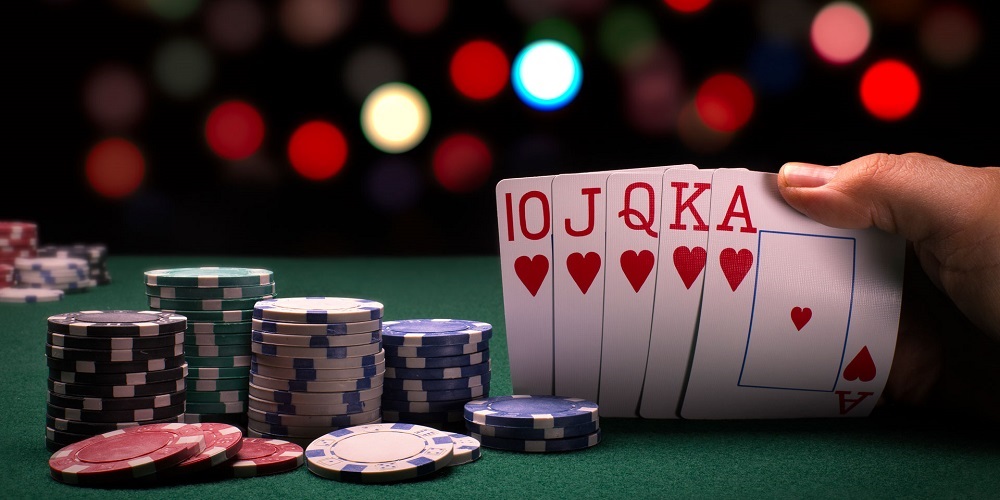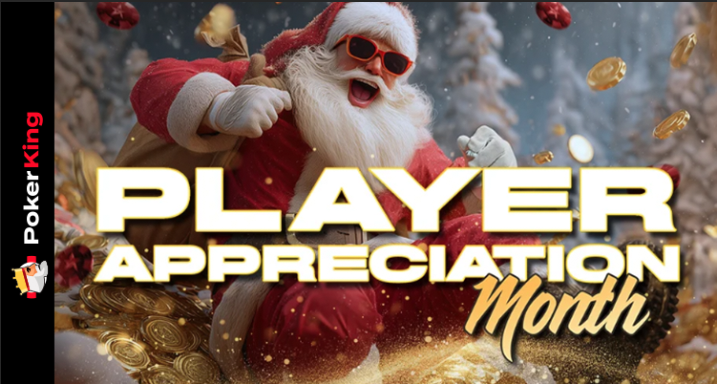

Interview with Partypoker team pro Ludovic Geilich

Interview to Ludovic Geilich, Partypoker team pro member
The interview of today at PokerStars European Poker Tour is for Scottish poker player Ludovic Geilich, 4th in the Scotland All time Money List and member of the Partypoker team pro. We really enjoyed talking with him. Supporter of Glasgow Rangers he really got deep down into important questions like rakes, strategy and the path for making a living of poker.
-Thank you Ludovic for your time. First of all, I would start for a basic question, I'm sure you've heard it so many times. How do you become a professional poker player?
-I think you don't really chose it but it depends on your upbringing and how you are. For example, you can be into like a lot of sports, like a gamer, but the essence is that you like problem solving. I played snooker, so there's a lot of angles and mathematics and problem solving and when I found out I wasn't good enough to make it professional, my friends were playing pokera at the time and that was for me like a path. Poker had this problem solving and a lot of thinking involved and I fell in love with the game quite quick.
-Right, but one thing is loving poker and another thing being able to make a living of it.
-I think at the start you have to become succesful 'cause I think if you lose money, and lose money it's not going to interest you which means you're not going to want to play the game 'cause there's no enjoyment, there's no winning. You have to be winning to enjoy the game, so at the start, it's like "beginners luck" then after that you can kind of make a judgement on your own whether you are good enough to make money of the game and you need to be honest with yourself, you need to know deep down yourself if you're good enough.
-How long have you been in the Partypoker team pro?
-Only like a month, about six week aproximately.
-I'd like to ask you about the pros and cons of being in a big brand team like Partypoker and going solo, in terms of freedom to plan your tournament agenda etc.
-That's a good question. There's positives and negatives. As a poker player, I would say the majority of poker players won't organize their lifes, so they take it like day by day. The fact that you're going to be an ambassador for a big company means that you need to be a lot more professional, to get your life in order, walking with a company that you want to walk with. At the same time it's a lot easier financially, because you're playing their tournaments and you're an ambassador for them, so you get sponsored by them, and this means saving money to a certain extent. Obviously when you promote their brand, when you play online you get some sort of income, so you're making a living.
-What do you prefer live or online poker?
-I like both, it depends on your mood. If you're doing badly online, you take a break and you play live. If you're doing badly live, you take a break and you play online. And if you're doing badly both you take a break altogether (laughs). But it's very hard to do bad at boths, one or the other, so you can always like chop and choose.
-Yes, but strategies are very different wether you play life or online?
-Yes, like there's a lot more of mathematics theoretically based when you play online. Also,you can't really get them to fold the hand, just by intimidating the player at the table, like to could do live, maybe getting into his mind a bit too much, he could become nervous, which means he'd do something that he never would do if he were in the house.
-Do you play cash our tournaments?
-I play like 90% tournaments and when I play cash I play like PLO (Pot Limit Omaha) only.
-Do you sort of prepare the tournaments, like depending on who will you be seating with etc?
-No, I don't. I'm just very natural, I like to go into the game. I think there shouldn't be any information gathered, I think you just should play the game, like straight, natural.
-How important is rake for a professional poker player?
-Extremely important.I don't want to diss a company like PokerStars but what they've done to their rakeback system is disgusting.
-Any tells or features, that could serve to identify weak players or fishes at the tables? Like basic stuff, you could tell us.
-I've played for fifteen years, and I'd say that the most basic tells and the most easiest stuff still up to these days are in Mike Caro's book. If you google it, they'll come up in youtube and you will be able to see the most basic stuff but they're still so important today. It's just body language.
-Is there a real difference in the game between players depending if they're playing high stakes or low stakes?
-When it comes to the elite poker players, the most of them are doing quite the same kind of things. It just depends on the buy-in level. For example, if I'm playing like a 1k tournament what is quite a small buy-in, the fact is I've played so many of them, that I've got the most amount of experience in them, so I can play them better than even players that are better than me, because they can't adjust to the buy-in level, and to the players that they are playing against. So I can probably say that I can understand the players buy-in range better than they can, this means, I have an advantage in 1k, but when I play with them in the 10k or the 25k I have not this advantage.
-Who would be in a perfect final table for you?
-I would love to play with, regardless wether they're poker players or not, Anthony Hopkins, Elons Musk...then, poker players that are alive I would like to play with Phil Ivey...He has just been there from the start, he's like the Tiger Woods of poker, even though he's failed behind recently, he's the face of poker.
-What is your poker daily routine? Do you study, watch hands...?
-I don't do much studying. I like to do some reading every now and again but it's best to talk to people in person. We have a big whatsapp chat, with about thirty people in there, and they're all different levels and buy-in players. For example there are 500 or 1k guys and guys like Jake Cody and Neil Farrell, that play high stakes events. You can get so much experience from like everybody about an aspect of the game, so you can just put it all together and sort of construct something and make a good use of it. For instance, you can talk to players like Jake Cody or Neil Farrell, they are both playing a very GTO theoretically based approach and you learn to adapt your game when you play high stakes and play more explotative, a more theoretically and fundamentally solid game.
-A total different question. What are for you the best stops of the international circuit?
-I went to Vienna, four or five years ago and that was the nicest stop. After that, Australia, the Aussie Millions, that's also my most recent stop.
-Do you see yourself playing professionally forever?
-I think I am going to play poker for the rest of my life. If I'm still alive at the age of 60 I will be still playing now and then, like or whatever. But I don't see myself as a professional player like being 60, but yes, still playing the game.
-Ok, Ludovic, thank you so much for getting so deep into the questions. We really love that.
-Thank you. No problem at all!
You may also like

Crypto Poker: Is This the Future of Online Gaming?
Crypto Poker: Is This the Future of Online Gaming?The Rise of Crypto PokerThe use of cryptocurrencies in online poker has become an undeniable trend. More platforms are accepting Bitcoin, Ethereum,...

Poker tournaments at WPT Global have even more value for players thanks to the launch of the weekly multi-table tournament leaderboards.
WPT GLOBAL LAUNCHES WEEKLY TOURNAMENT LEADERBOARDS WITH SUPER PRIZESPoker tournaments at WPT Global have even more value for players thanks to the launch of the weekly multi-table tournament leader...

Preflop betting in Omaha poker: how much to bet in PLO
Pot Limit Omaha, commonly known as PLO, is a modality of traditional Omaha poker in which the maximum raises are conditioned by the size of the pot.As its name indicates, the limit of the bets and...













